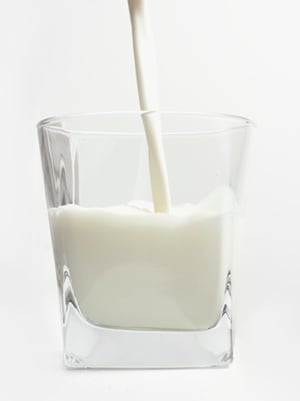
I’ve never been a huge fan of milk. Maybe it was one too many dinners washed down with a gross glass of milk and ice (blech!) as a toddler and not enough pleasurable experiences of Oreos dipped in a tall glass of the white stuff.
These days, my cravings for milk only come around once in a blue moon, and it’s usually only when I need a few drops in my cup of joe.
So when I saw a headline in the Sunday New York Times that read, “Got Milk? You Don’t Need It,” I was intrigued. The opinion piece by columnist Mark Bittman called for Americans to stop holding the drink to such high and holy standards, especially in a country where approximately 50 million people are lactose intolerant.
He wrote of the health issues he often suffered after consumption of dairy, including chronic heartburn and, like me and many others, an upset stomach. After swearing off dairy for just one day, his symptoms disappeared. “Although treating heartburn is a business worth more than $10 billion a year,” he wrote, “the solution may be as simple as laying off dairy. (Which, need I point out, is free.)”
As for me, I’ve been drinking lactose-free milk for almost a year now.
While I’ve never been officially diagnosed as lactose intolerant, it’s
clear that lactose-free milk is much friendlier to my stomach. Same goes
for my roommate, who, it’s worth noting, is of Asian descent like me—90
percent of Asian-Americans are lactose intolerant.
Still, 50 million lactose-intolerant Americans make up just 16 percent of the population. So is Bittman’s argument that we don’t need milk all that valid?
Absolutely, says Dr. Robynne Chutkan of the Digestive Center for Women in Chevy Chase. The integrative gastroenterologist points out the science behind dairy to explain why the revered drink is not strictly necessary.
She explains that dairy is the main source of fat in our diet, but a high-fat diet is linked to acid reflux, or GERD. Those who suffer from GERD often need anti-reflux medications, which block stomach acid. “Great for your acid reflux, but not so good for the rest of you,” Chutkan says, “especially for your bones.”
Here’s the problem: Acid is needed for our bodies to absorb calcium and vitamin D, “so drugs for acid reflux are a risk factor for developing osteoporosis,” Chutkan says.
“Countries with the highest rates of dairy consumption often have the highest rates of osteoporosis.”
It’s estimated that approximately 50 million men and women in the United States are affected by osteoporosis. Is it really that much of a coincidence that 50 million Americans are lactose intolerant, too?
“Maybe if we just avoided or cut down on dairy we wouldn’t need all those reflux drugs!” Chutkan says.
But I was surprised to find out that I’m going about my lactose-free life all wrong. “Drinking lactose-free milk isn’t a panacea,” Chutkan tells me. “Avoid dairy rather than consuming lactose-free milk.”
She explains her reasoning by comparing it to diabetes, in which the healthiest option is to avoid sugar all together instead of eating sugar-free foods. “You can’t cheat Mother Nature,” she says. “If your body can’t digest it, you probably shouldn’t be eating it.”


















